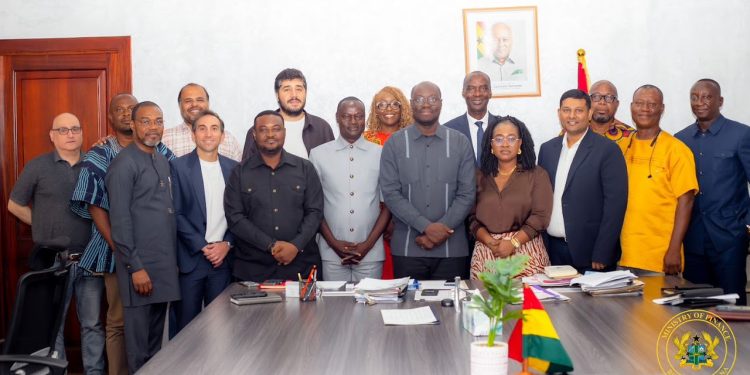Cedi’s Strength Not “Nine-Day Wonder” – Dr Ato Forson as Ghana Eyes Sustained Stability
Ghana’s Finance Minister, Dr Cassiel Ato Forson, has dismissed suggestions that the recent rally in the Ghanaian cedi is temporary, asserting that the currency’s appreciation is rooted in deliberate economic policy rather than fleeting market sentiment.
Addressing executives of the Food and Beverage Association of Ghana (FABAG), Dr Forson underscored the government’s commitment to maintaining exchange rate stability, stating, “The appreciation of the cedi will not only continue but will be sustained.”
The cedi has posted a significant turnaround recently, climbing to GH¢13.29 to the US dollar on the interbank market from levels above GH¢16 earlier in the year. This performance has fuelled cautious optimism in the business community and the financial markets amid ongoing fiscal adjustments and structural reforms.
According to Dr. Forson, the strengthening of the currency is not the result of short-term interventions or external shocks. “The stability and appreciation you are witnessing is not a knee-jerk reaction,” he said. “It is the product of careful, well-thought-out planning.”
The minister’s remarks reflect growing confidence in Ghana’s macroeconomic trajectory following a recent staff-level agreement with the International Monetary Fund (IMF) under the country’s Extended Credit Facility program. The agreement, tied to the fourth review of the programme, is expected to unlock a $370 million disbursement—bolstering reserves and fiscal space at a critical juncture.
Since taking over the finance portfolio earlier this year, Dr. Forson has signalled a break from past policy cycles defined by boom-bust currency volatility. His agenda has prioritised inflation control, exchange rate stability, and job creation—pillars he views as essential for long-term economic resilience.
“This is not a nine-day wonder,” he told FABAG stakeholders. “There will be stability, the cedi will be stronger, and we expect you to support these efforts so that Ghanaians can feel the impact.”
While investor sentiment has improved following recent IMF engagements, concerns remain about Ghana’s underlying structural vulnerabilities, including its debt servicing commitments, import dependency, and exposure to external shocks.
Nonetheless, the government is betting that sustained policy discipline—combined with the gradual restoration of market confidence—will underpin a more resilient and competitive currency regime.
Dr Forson’s message to industry players was clear: support government efforts to maintain stability and help translate macroeconomic gains into real-sector outcomes. As businesses begin to adjust their import and pricing strategies in response to the cedi’s recovery, the weeks ahead will test whether the government’s optimism holds.










